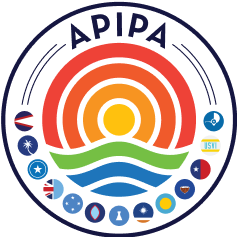APIPA 2025 Courses
The APIPA 2025 Conference is offering twenty-one courses in plenary, general and technical tracks from September 8 to September 12, 2025. Four concurrent courses will be offered Monday-Friday; participants may only join one of those courses on each of those days.
Plenary
Technically, an auditor’s job description probably does not include the term “detective.” But if a suspected fraud reaches the point where criminal charges seem likely, auditors may be called upon to perform an investigatory function. For those who have never worked alongside law enforcement officers and prosecutors, this may be a strange and challenging experience. This presentation will walk through the identification, investigation, and courtroom presentation of procurement fraud cases from the perspective of a federal prosecutor. Focus is on how auditors can help the prosecution team build sufficient admissible evidence to prove criminality beyond a reasonable doubt.
.png)
Eric S. O'Malley
Saipan, CNMI
Plenary
The closing plenary will feature the following presentations:
Artificial Intelligence in the Workplace
This session explores the growing influence of artificial intelligence (AI) in our daily lives and the workplace. The presentation will provide an overview of AI fundamentals, highlight where AI appears in our daily lives, and introduce generative tools such as Large Language Models (LLMs). The session will also cover AI prompting techniques, explore key challenges and issues in the AI landscape, and offer sample prompts that can be used in professional settings.
Strengthening Collaboration for Oversight: SAIs and Stakeholders
This session explores the oversight role of SAIs and how they can work with key stakeholders to hold the government to account.

William Hunter
Saipan, CNMI

Esther Lameko-Poutoa
Auckland, New Zealand
Track A
Understand the full grants management process, the current regulatory requirements (OMB Revised 2022 Guidance) governing grants and the role of auditors in developing strategies for assessing compliance and performance. Learn to develop audit objectives and procedures to identify issues and recommendations for constructive feedback, corrective action and accountability. Learn the stages of effective grants management from award, monitoring, audit and close-out. Become skillful at implementing strategies for auditing, application of cost principles performance measurement and reporting through each of the grant stages by applying those strategies in case studies

Robert Adachi
Oakland, California
Track A
The morning session builds on the initial Basic Investigation class by teaching advanced forensic accounting techniques to help investigators detect fraud through financial audits and investigate fraud by following the money. Participants will learn from investigative partners, participate in practical exercises to demonstrate new techniques, and learn the role of forensic accounting in proceedings, and criminal court.
The afternoon session will cover advanced documentation and investigative report writing. We will cover the importance of concepts such as writing for your audience, using plain language, active voice and bottom line up front (BLUF). Participants will learn the importance of effective report writing and how to write reports that help bring investigations to trial. Finally, we will have a panel discussion where we will discuss lessons learned during joint Federal-Territorial investigations.

David House
Denver, Colorado

Katharine Kovacek
Denver, Colorado
Track A
If you have been assigned to only portions of a performance audit and need an overall perspective of the process, this course is for you. Improve your knowledge and skills related to all phases of the performance audit and the evaluation of results. By working a case study throughout the course, experience a complete audit, including preparing an audit justification, planning and conducting a survey, planning the audit and preparing a report.

Drummond Kahn
Portland, Oregon
Track A
A key challenge in reporting the results of performance audits is to formulate the report message from the audit data. An additional challenge is to then compile and sequence the audit facts to support that message. Using alternative methods, gain hands-on practice in marshaling the evidence from your audit into findings that answer the audit objectives and present the details in an understanding and convincing manner.

Drummond Kahn
Portland, Oregon

Beth Schubert
Denver, Colorado
Track B
The Intermediate Accounting session will provide participants with an in-depth view into the world of governmental accounting.

David Bean
Springfield, Illinois

Frank Crawford
Oklahoma City, Oklahoma
Track B
Receive an in-depth review and update on the 2018 and 2024 revision of Government Auditing Standards, plus a brief history on the development of the standards. Discuss the structure of the 2018 and 2024 revisions of the standards and the major changes, focusing on the sections applicable to performance audits. Discuss the purpose and requirements of individual standards, with emphasis on the recent changes. The session will conclude with options for presenting audit results under the newest revisions of the Yellow Book.

Drummond Kahn
Portland, Oregon
Track B
A high performing audit organization needs skilled, committed, and motivated staff/team members that have a strong sense of organizational purpose and self-direction. Great audit managers and leaders need to put staff in a position to succeed while constantly learning, improving and growing.

Michael Binder
Washington, District of Columbia
Track B
The Performeter is an analytical tool that takes a government’s financial statements and converts them into useful and understandable measures of financial performance.

Frank Crawford
Oklahoma City, Oklahoma
Track C
Geared toward program managers, administrators, legislators, and other nonaccountants, this workshop provides an introduction to the basics of accounting followed by a guide to reading and understanding the financial statements.

Jeanne Yamamura
Reno, Nevada
Track C
Managing positive and productive relationships throughout the audit, directing, coaching or working with members of the audit team, and dealing with auditees, organizational management and external stakeholders can be emotionally challenging and often confrontational. Auditors often must deal with difficult people in difficult situations - and must deal with the auditees!

Michael Binder
Washington, District of Columbia
Track C
The GASB Standards Update will provide participants with a working knowledge of recently release standards of the Governmental Accounting Standards Board (GASB).

David Bean
Springfield, Illinois

Frank Crawford
Oklahoma City, Oklahoma
Track C
The Infrastructure Investment and Jobs Act (IIJA) provides $1.2 trillion in federal spending over the next five years mostly in grants and contracts to states and local governments for public transit, railways, power grids, electric vehicles and buses, ferries, airports, waterways, climate change, broadband internet, environmental protection, drinking water, and transformation safety. This program of fast-moving money, with untested controls, provides vast opportunities for fraud and waste. Auditors, investigators, and grants and contract managers at all levels of government will need to be especially vigilant for possible schemes and red flag indicators of fraud that robs the public of funds and performance.

Michael Binder
Washington, District of Columbia
Track D
This seminar will include a discussion of the components of a fraud investigation program, how to identify fraud, and what to do when you find it. We will discuss developing policy, clarifying your authority and budget, identifying staff and support. We will then discuss how to find fraud, by learning how to assess organizational vulnerability to fraud, how to build sources, how to be proactive, and give an overview of fraud schemes and what investigations of those schemes might look like in the wild. We will include classroom exercises and actual case discussion.

David House
Denver, Colorado

Katharine Kovacek
Denver, Colorado
Track D
You are a grant manager and you need to have contractors help you achieve your grant objectives. Does your organization have the administrative knowledge of the various Federal requirements to ensure that the contract is awarded properly? Is the proper contract type being used? Does your organization perform a cost and price analysis before awarding a contract? If you cannot answer yes to all these questions, then this course may help you.

Robert Adachi
Oakland, California
Track D
This course addresses compliance requirements and includes coverage of the Single Audit, findings, and corrective action plans. The grant reporting function and process are also reviewed as are the links to the governmental accounting system. Participants will leave the course with improved knowledge and skills in understanding the Single Audit Report and taking appropriate action.

Jeanne Yamamura
Reno, Nevada
Track D
This workshop addresses common ethical problem areas for government employees. It focuses on the importance of culture in maintaining an ethical work environment.

Jeanne Yamamura
Reno, Nevada
 +1.808.523.1650
+1.808.523.1650





 CONTINUE
CONTINUE